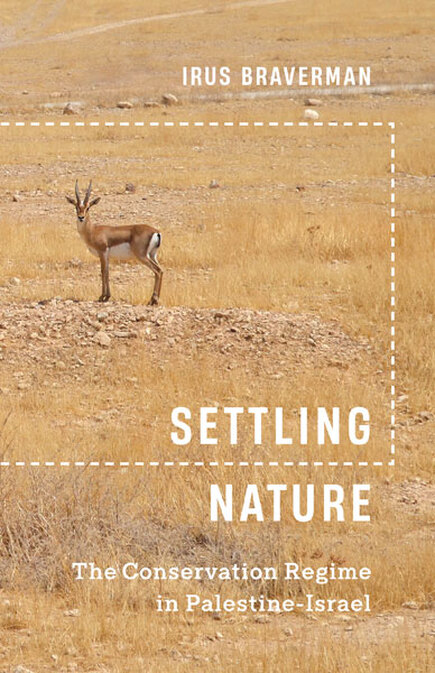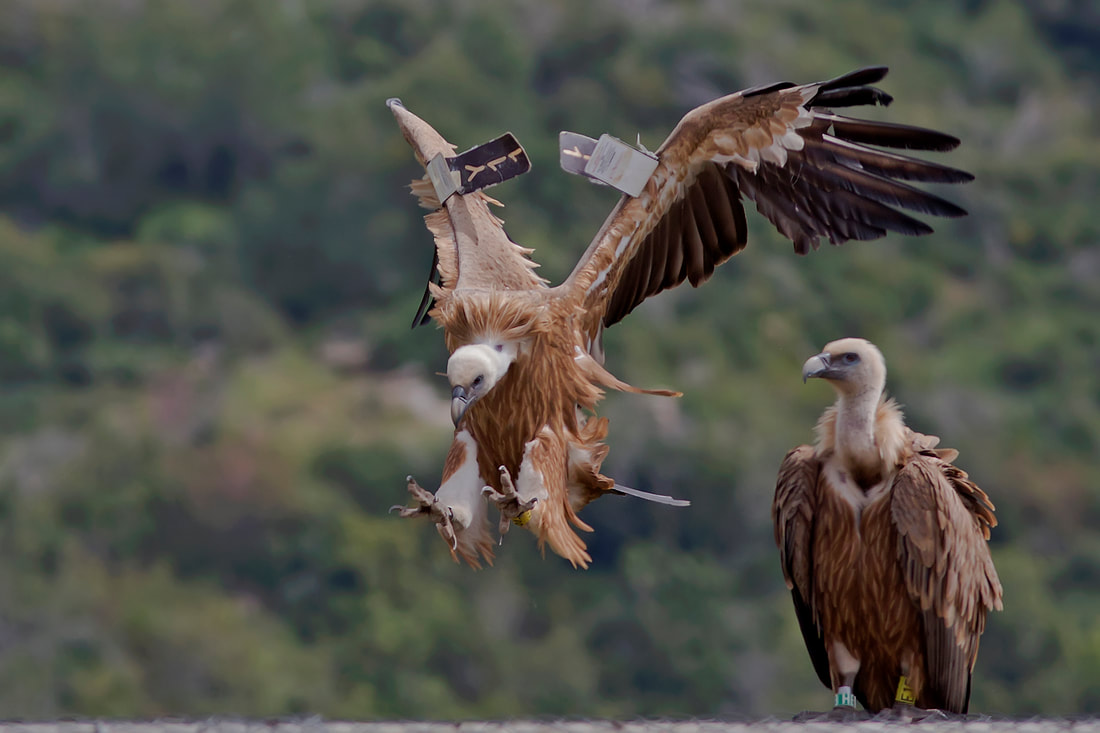|
Studying nature conservation in Palestine-Israel through the lens of settler colonialism Settling Nature draws on more than a decade of ethnographic fieldwork to document how the administration of nature in Palestine-Israel advances the Zionist project of Jewish settlement alongside the corresponding dispossession of non-Jews from this space. Highlighting the violent repercussions of Israel’s conservation regime, Braverman plants the seeds for possible reimaginings of nature that transcend the grip of the state’s settler ecologies.
Nature management is much more central to the settler colonial project than is commonly recognized. In Settling Nature, Irus Braverman draws on more than a decade of ethnographic fieldwork to document how the administration of nature in Palestine-Israel advances the Zionist project of Jewish settlement alongside the corresponding dispossession of non-Jews from this space. The book proceeds through two intersecting lines of inquiry: it first studies the protection of land through its designation by the settler state as a national park or nature reserve; then, it documents the settler state’s protection of animals and plants, which often exceeds the boundaries of the protected territories. Braverman argues that this dual protection scheme lies at the heart of the extensive yet overlooked conservation regime in Palestine-Israel, which she terms “settler ecologies.” The territorial reach of nature protection in Palestine-Israel is remarkable. To date, nearly 25 percent of the country’s total land mass has already been designated as a nature reserve or a national park. Alongside this sovereign enclosure of land, Israel’s settler ecologies center on the biopolitical protection of fauna and flora, leading to widespread ecological warfare. Recruited to the front lines are fallow deer, gazelles, wild asses, griffon vultures, pine trees, and cows on the Israeli side against goats, camels, olive trees, hybrid goldfinches, and akkoub on the Palestinian side. These nonhuman soldiers are all the more effective because nature camouflages their tactical deployment. Highlighting the violent repercussions of Israel’s conservation regime, Settling Nature plants the seeds for possible reimaginings of nature that transcend the grip of the state’s settler ecologies. |
ReviewsThis remarkable book expertly covers a neglected part of the planet’s most commented-on conflict, the central role of nature protection in Palestine-Israel. Combining rich empirics and eye-opening theoretical insights, Irus Braverman presses a highly ‘unsettling’ yet profoundly important point: how the conservation of critical more-than-human natures sits at the heart of many of the most consequential and distressing power struggles of our time.
—Bram Büscher, author of The Truth about Nature: Environmentalism in the Era of Post-truth Politics and Platform Capitalism Irus Braverman’s fascinating account of the formulation and enforcement of conservation policies in Palestine-Israel examines a series of cases that exemplify tensions that emerge around attempts to conserve species, landscapes, and ecosystems. As it illuminates the environmental and political history of Palestine-Israel, Settling Nature will also engage those interested in the conflicts surrounding conservation movements in many other places. --Harriet Ritvo, author of The Animal Estate: The English and Other Creatures in Victorian England Related Book Chapters(2021). The Jewish National Fund, Trees, and Eco-ZionismTM. Jüdischer Almanach (in German).
Related MediaVideo Interview: Doing Ethnography Remotely. (2020)
Buffalo News, Another Voice: The Green Line’s final breaths: Life beyond the rockets. Buffalo News. (2021) |
Related Articles(2021). Wild Legalities: Animals and Settler Colonialism in Palestine/Israel. Political and Legal Anthropology Review (PoLAR) 44(1): 7-27. Link
(2021). Environmental Justice, Settler Colonialism, and More-than-Humans in the Occupied West Bank: An Introduction. Environment and Planning E 4(1): 3-27 (special issue). Link. (2020). Nof Kdumim: Remaking the Ancient Landscape in East Jerusalem’s National Parks. Nature and Space: Environment and Planning E 4(1): 109-134 (special issue). Link (2019). Uprooting Identities: The Regulation of Olive Trees in the Occupied West Bank. (reprint). Open Anthropology (special issue on Walls, Fences, and Barriers) 7(1). Link (2019). Silent Springs: The Nature of Water and Israel’s Military Occupation. Nature and Space: Environment and Planning E 3(2): 527–551. Link (2018). Renouncing Citizenship as Protest: Reflections by a Jewish Israeli Ethnographer. Critical Inquiry 44(2): 379–386. Link (2017). Captive: Zoometric Operations in Gaza. Public Culture 29(1): 191–215. Link (2013). Animal Frontiers: A Tale of Three Zoos in Israel/Palestine. Cultural Critique 85: 122-162. Link (2011). Hidden in Plain View: Legal Geography from a Visual Perspective. Journal of Law, Culture, and the Humanities 7(2): 173-186. Link (2010). Governing with Clean Hands: Automated Public Toilets and Sanitary Surveillance. Surveillance & Society 8(1): 1-27. Link (2009). Loo Law: The Public Washroom as a Hyper-Regulated Space. Hastings Women's Law Journal 20(1): 45-71. Link |
Table of Contents
Preface and Acknowledgments
Introduction: Settling Nature
1. Policing Nature: Beit Jann, the Green Patrol, and the Mount Meron Nature Reserve
2. Reintroducing Nature: Persian Fallow Deer, European Goldfinches, and Mountain Gazelles
3. Landscaping Nature: Jerusalem’s National Park System
4. Juxtaposing Nature: Wild Ass vs. Camel, Goat vs. Pine, Olive vs. Akkoub
5. Occupying Nature: The Wild West Bank and Wadi Qana Nature Reserve
6. Militarizing Nature: The Griffon Vulture and Israel’s Nature Defense Forces
Conclusion: Unsettling Nature
Notes
Index
Introduction: Settling Nature
1. Policing Nature: Beit Jann, the Green Patrol, and the Mount Meron Nature Reserve
2. Reintroducing Nature: Persian Fallow Deer, European Goldfinches, and Mountain Gazelles
3. Landscaping Nature: Jerusalem’s National Park System
4. Juxtaposing Nature: Wild Ass vs. Camel, Goat vs. Pine, Olive vs. Akkoub
5. Occupying Nature: The Wild West Bank and Wadi Qana Nature Reserve
6. Militarizing Nature: The Griffon Vulture and Israel’s Nature Defense Forces
Conclusion: Unsettling Nature
Notes
Index

